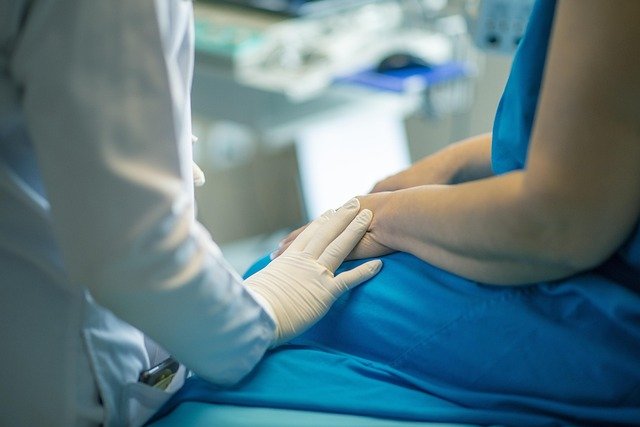Sperm Donation as a Supportive Option in Fertility Treatment Pathways
Sperm donation is one of several pathways available to individuals and couples who need support in starting or expanding a family. It plays an important role in fertility care by providing an additional option when natural conception is not possible or when specific medical or personal situations require donor involvement. The process typically includes medical screening, counselling and clear agreements to ensure that all parties understand their roles and rights. In some programmes, donors may receive acknowledgements for their time and commitment, while recipients benefit from structured systems that help guide them through selection and treatment steps. This article outlines how sperm donation fits into broader fertility treatment pathways, what potential donors and recipients should keep in mind and how structured programmes create clarity, safety and support throughout the process.

Fertility challenges affect millions of people worldwide, with male factor infertility contributing to approximately 40-50% of all cases. When natural conception or standard fertility treatments are not viable options, sperm donation emerges as a medically established pathway that can help individuals and couples achieve their family-building goals. This process involves a structured medical framework designed to ensure safety, efficacy, and ethical considerations for all participants.
Role of Sperm Donation in Fertility Care
Sperm donation serves as a crucial intervention within comprehensive fertility treatment programs. Medical professionals typically recommend this option when male partners have severe oligospermia, azoospermia, genetic disorders that could be transmitted to offspring, or when previous fertility treatments have been unsuccessful. The process integrates seamlessly with assisted reproductive technologies such as intrauterine insemination (IUI) and in vitro fertilization (IVF), providing flexibility in treatment approaches based on individual medical circumstances.
Fertility clinics maintain detailed protocols to match donors with recipients based on physical characteristics, blood type compatibility, and medical history considerations. This systematic approach ensures optimal outcomes while maintaining confidentiality and ethical standards throughout the treatment process.
Screening, Eligibility and Donor Requirements
Comprehensive screening protocols form the foundation of safe sperm donation programs. Potential donors undergo extensive medical evaluations including detailed health histories, physical examinations, genetic testing, and psychological assessments. Age requirements typically range from 18 to 40 years, with many programs preferring donors between 21 and 35 years old.
Laboratory testing encompasses infectious disease screening for HIV, hepatitis B and C, syphilis, gonorrhea, and chlamydia. Genetic screening identifies carriers of hereditary conditions such as cystic fibrosis, sickle cell disease, and Tay-Sachs disease. Semen analysis evaluates sperm concentration, motility, and morphology to ensure samples meet strict quality standards.
Lifestyle factors also influence eligibility, with programs typically excluding individuals with substance abuse histories, certain medications, or high-risk behaviors. Educational background and family medical history provide additional screening criteria to optimize recipient outcomes.
Guidance, Agreements and Programme Structure
Fertility programs establish clear frameworks governing sperm donation processes through comprehensive agreements and structured guidance systems. Legal contracts outline responsibilities, rights, and limitations for all parties, addressing issues such as anonymity, future contact possibilities, and financial arrangements.
Counseling services provide essential support throughout the process, helping donors understand the psychological implications of their participation and assisting recipients in navigating emotional aspects of using donor gametes. Many programs require mandatory counseling sessions before, during, and after the donation process.
Program structure typically involves multiple donation sessions over several months, with samples quarantined for six months before use to allow for additional infectious disease testing. Documentation systems maintain detailed records while preserving confidentiality requirements.
Considerations for Donors and Recipients
Both donors and recipients face important considerations when participating in sperm donation programs. Donors must understand the long-term implications of their genetic contribution, including potential future contact from offspring and the emotional aspects of helping others build families. Time commitments, medical appointments, and lifestyle restrictions during active donation periods require careful consideration.
Recipients benefit from understanding success rates, which vary based on factors such as age, underlying fertility issues, and treatment methods used. Single women and same-sex couples often find sperm donation provides their primary pathway to biological parenthood, while heterosexual couples may use donor sperm after unsuccessful treatments with partner sperm.
Cost considerations vary significantly by location and program structure. Treatment expenses typically include donor screening fees, storage costs, and procedure fees for insemination or IVF cycles.
| Service Component | Typical Cost Range | Additional Notes |
|---|---|---|
| Donor Screening & Selection | $200-$800 | One-time fee per donor selection |
| Sperm Sample Purchase | $300-$1,000 per vial | Multiple vials often needed |
| Storage & Handling | $100-$300 annually | Ongoing storage fees |
| IUI Procedure | $500-$2,000 per cycle | Including monitoring and medications |
| IVF with Donor Sperm | $8,000-$15,000 per cycle | Comprehensive treatment package |
Prices, rates, or cost estimates mentioned in this article are based on the latest available information but may change over time. Independent research is advised before making financial decisions.
Conclusion: A Structured Pathway Within Fertility Support
Sperm donation represents a well-established, medically supervised option within comprehensive fertility care frameworks. Through rigorous screening processes, structured program guidelines, and ongoing support systems, this pathway offers hope to individuals and couples facing male factor infertility challenges. Success depends on careful program selection, thorough understanding of all involved processes, and realistic expectations about outcomes. As reproductive medicine continues advancing, sperm donation remains an integral component of modern fertility treatment options, providing structured pathways to parenthood when other approaches prove insufficient.
This article is for informational purposes only and should not be considered medical advice. Please consult a qualified healthcare professional for personalized guidance and treatment.




